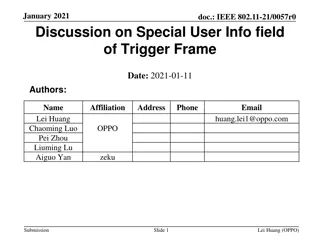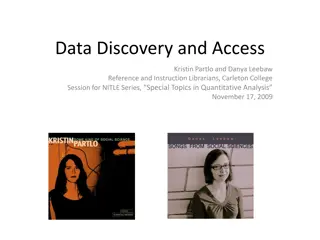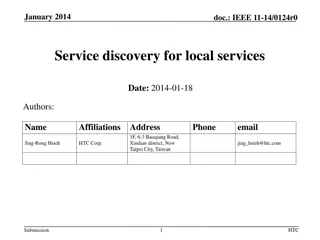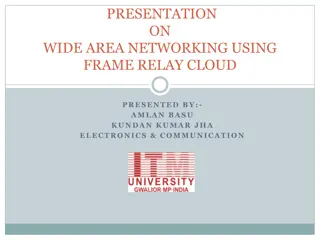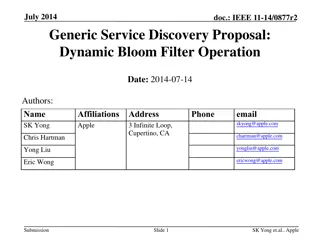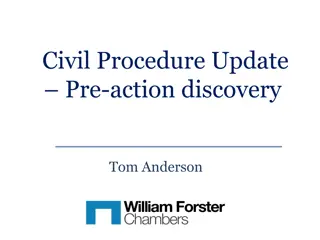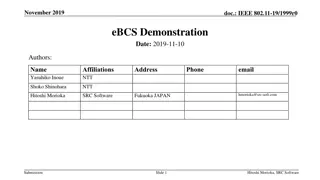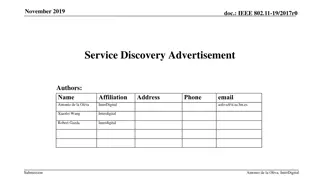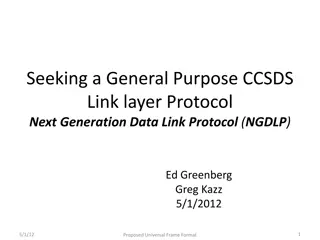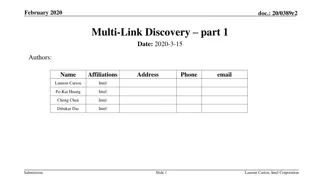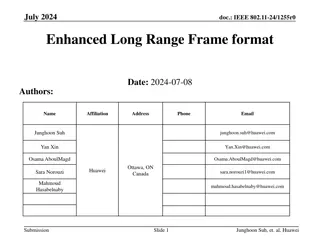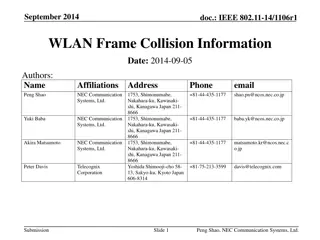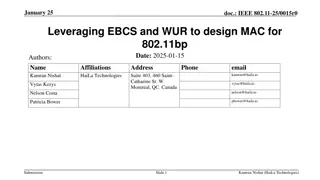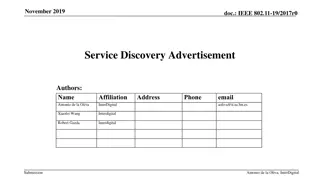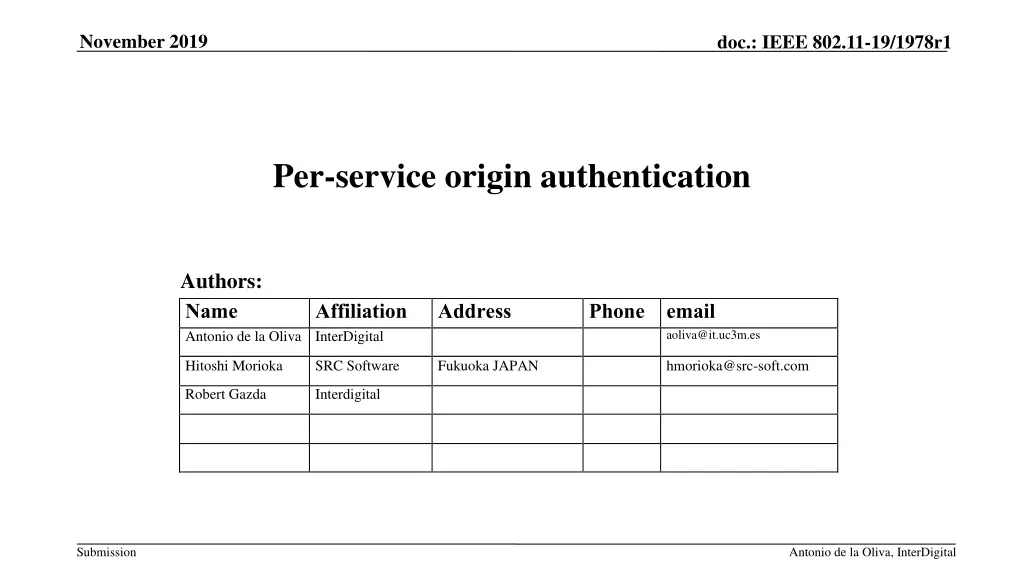
IEEE 802.11-19/1978r1 Per-Service Origin Authentication Proposal
Explore the proposal for per-service origin authentication in IEEE 802.11-19/1978r1 document, addressing the use of TESLA protocol and the need for separate authentication keys for different services to enhance security and efficiency in multi-service scenarios.
Download Presentation

Please find below an Image/Link to download the presentation.
The content on the website is provided AS IS for your information and personal use only. It may not be sold, licensed, or shared on other websites without obtaining consent from the author. If you encounter any issues during the download, it is possible that the publisher has removed the file from their server.
You are allowed to download the files provided on this website for personal or commercial use, subject to the condition that they are used lawfully. All files are the property of their respective owners.
The content on the website is provided AS IS for your information and personal use only. It may not be sold, licensed, or shared on other websites without obtaining consent from the author.
E N D
Presentation Transcript
November 2019 doc.: IEEE 802.11-19/1978r1 Per-service origin authentication Authors: Name Antonio de la Oliva InterDigital Affiliation Address Phone email aoliva@it.uc3m.es Hitoshi Morioka SRC Software Fukuoka JAPAN hmorioka@src-soft.com Robert Gazda Interdigital Submission Antonio de la Oliva, InterDigital
November 2019 doc.: IEEE 802.11-19/1978r1 Problem Statement In order to fulfill requirement R3.3.1, current IEEE 802.11bc TG discussions consider in [1] the use of TESLA protocol to authenticate the AP. TESLA is a kind of one-way key chain algorithm published as IETF RFC4082. It allows to check the integrity and authenticate the source of each packet in multicast or broadcast data streams by low-cost operations. The use of this protocol is specified in contribution [1] and consists on the recurrent authentication of the frames. Submission Antonio de la Oliva, InterDigital
November 2019 doc.: IEEE 802.11-19/1978r1 Problem Statement IEEE 802.11bc may provide different services simultaneously Imagine a downstream situation where two eBCS services are transmitted: 4K video stream Low rate audio transcription for hearing impaired people The device operating the audio transcription, which may be a constrained device, needs to buffer several frames of the 4K video in order to authenticate the origin As constrained the received device, the worse the situation Submission Antonio de la Oliva, InterDigital
November 2019 doc.: IEEE 802.11-19/1978r1 Proposal If a solution such as the TESLA-based solution is considered by the group: Provide a separated origin authentication key per service/group of services This key can be added to the service description STAs will need to identify the service they are interested in through service discovery and buffer only the frames related to their service. Submission Antonio de la Oliva, InterDigital
November 2019 doc.: IEEE 802.11-19/1978r1 Proposal Possible eBCS Info frame considering the Service Description and the Origin Authentication Category eBCS Public Action eBCS Sequence number OA Public Key Signature Timestamp CP Common eBCS Origin Authentication Parameters 0-variable eBCS Service count eBCS service list Octets 1 1 2 1 variable variable 8 1 bit 1 0-variable bit Length eBCS ID Content with restriction Human readable description URL eBCS Service Origin Authentication eBCS Origin Authentication parameters variable bits 16 Variable 1 Variable Variable 1 Length eBCS Sequence number Key of current sequence Distance Key of the last index Key of distance eBCS Info frame period 2 eBCS rekeying period bits 16 2 Variable 8 Variable Variable 2 Submission Antonio de la Oliva, InterDigital
November 2019 doc.: IEEE 802.11-19/1978r1 Straw Poll Should IEEE 802.11bc amendment include the possibility of having different origin authentication keys per service? 1. Yes 2. No 3. Abstain Submission Antonio de la Oliva, InterDigital
November 2019 doc.: IEEE 802.11-19/1978r1 References [1] 11-19-1802-00-00bc-tesla-improvement Submission Antonio de la Oliva, InterDigital

